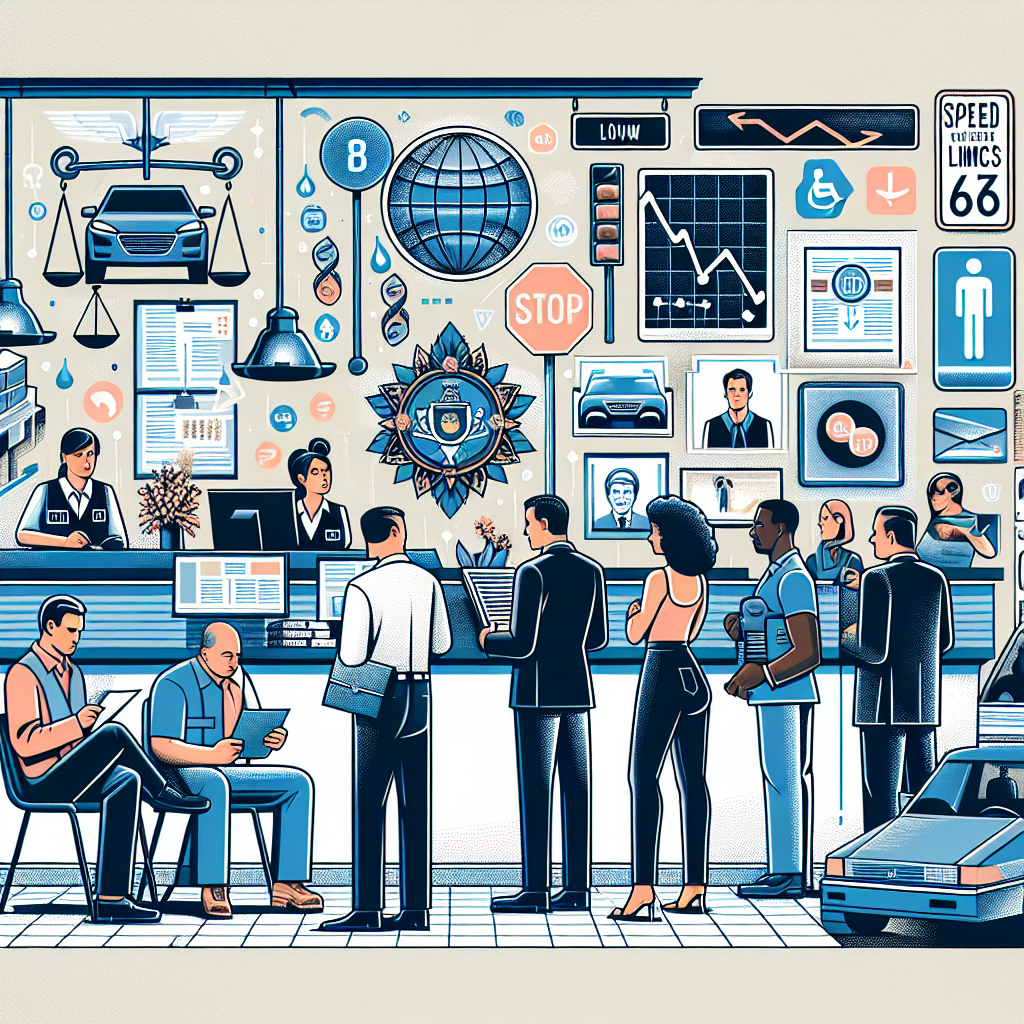What the New DMV Laws Mean for Better Traffic Violation Reporting
Introduction
Recently, changes in DMV laws have been made to help with traffic management. These new laws are meant to make traffic violation reporting systems work better and more accurately. In this blog post, we will talk about what these new laws are, how they affect current traffic systems, and what the possible benefits and challenges are.
Understanding the New DMV Laws
The new DMV laws are bringing big changes to make roads safer and improve traffic management. These laws focus on making it easier to report traffic violations and want people to use new technology for faster and more accurate data processing. The goal is to make sure that traffic reports have fewer errors, and that road incidents are recorded quickly and correctly.
These new laws came about because there was a need for accurate traffic data to make roads safer and handle things better. With these changes, we can stop just reacting to traffic problems and start preventing them instead.
Current Traffic Violation Reporting Systems
Right now, traffic violation reporting systems have many steps for collecting, checking, and storing data. Unfortunately, these processes can sometimes be slow, have mistakes, and not work well together across different platforms. Accurate data and quick processing are important for enforcing traffic laws and keeping roads safe, but current systems don’t always meet these goals.
Enhancements Brought by the New DMV Laws
The new DMV laws suggest several improvements to existing traffic violation reporting systems:
- Key Changes: The laws require using advanced technology to help collect and store data in real time.
- Technological Advancements: Digital platforms can replace old-fashioned paper systems, making data processing faster and more precise.
- Role of Digitalization: Using digital tools makes real-time updates possible, which helps with better tracking and analysis of traffic violations.
Benefits of Better Systems to Stakeholders
For Drivers
Better systems reduce the chance of mistakes in personal driving records, making sure that traffic violations are handled fairly and accurately.
For Law Enforcement
Improved systems help officers use their resources more effectively, focusing on areas that need immediate attention, which improves overall road safety.
For DMV Officials
These new laws make office work easier, reducing the paperwork and helping DMV officials deal with more important issues better.
Potential Challenges and Considerations
- Data Privacy and Cybersecurity: With more data stored digitally, strong security measures are necessary to protect personal information from hackers.
- Cost of Implementation: Switching to new technology can be expensive, which can be a problem for towns with limited budgets.
- Training Needs: People who work at the DMV and in law enforcement will need training to learn how to use the new systems and technologies properly.
Impact on Road Safety and Traffic Regulations
The better reporting systems are likely to improve road safety a lot. By providing complete data, it is easier to spot trends, which can help make better policies and improve traffic laws. The new laws can help reduce repeat offenses by making sure drivers are more accountable, possibly leading to safer driving habits.
Future of Traffic Violation Management
Going forward, traffic violation reporting systems might get even better. New technologies like AI and machine learning will change how data is handled and used. There is also a chance for nationwide or even worldwide standards, making traffic management more consistent across places.
Conclusion
The new DMV laws are leading to big changes in traffic violation reporting systems, aiming for safer roads through better processes. As everyone gets used to these changes, how we balance new ideas and rules will determine the success of these new plans. It’s important for drivers, law enforcement, and DMV officials to get ready for and accept these changes.
Additional Resources
To keep up with DMV updates and traffic rules, you can visit the DMV website, check out their latest updates, or contact Tags Clinic for help with DMV services in San Diego.
Whether you want to learn more about vehicle registration or need help with DMV services, Tags Clinic is here to make the process easier and ensure a smooth experience. Visit us today and make your DMV tasks simpler!
Call to Action
Ready to make your DMV tasks a breeze? We’re thrilled to assist you at Tags Clinic, located at 3845 University Ave, San Diego, CA. You can also reach us at 619-777-9046. Check out our website at https://tagsclinic.com for additional information and support. Remember, we’re here to make your life easier!

Leave a Reply